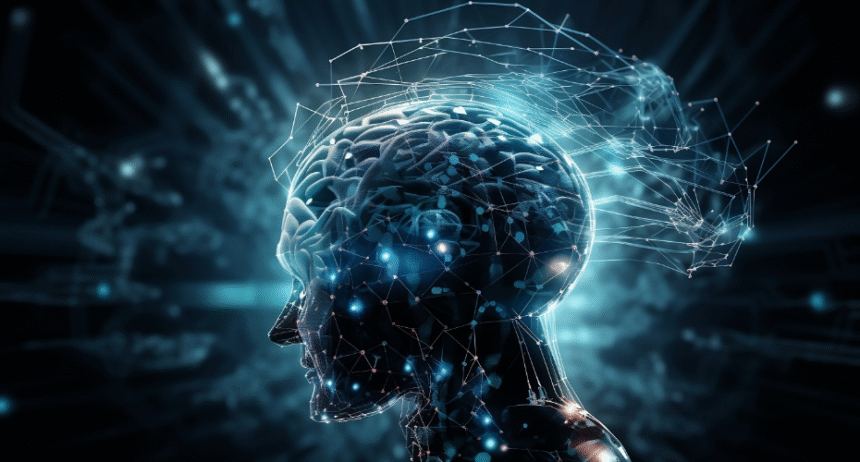Visualize a high-voltage chess game. One player analyzes every move, instantly conforms strategies, and gains a competitive edge by anticipating change. The second player doesn’t just play the game, but pictures new possibilities, innovating moves no one has ever tried previously. Both dominate in their own ways. The binarism demonstrates how AI is driving change across industries today. Few AI-based solutions are effective because of their ability to learn from changing data sources and adapt in real-time, while others are capable of generating new ideas, solutions, and content. They established the umbrella for significant discussion in business – adaptive AI versus generative AI. Knowing the power of each can change the way businesses are built, compete, and grow.
The Evolution of Adaptive AI vs Generative AI
We can say that artificial Intelligence has moved from a futuristic concept to an essential element of business strategy. Within this journey, Adaptive AI vs Generative AI are two significant milestones.
Adaptive AI-
The focus of the system is to learn and grow from given data, people (users), and environmental feedback. Organizations are leveraging AI to personalize customer service, optimize logistics, detect fraud, and enhance processes. Its power is that it is always relevant in environments that are constantly changing.
Generative AI-
Instead of involving change, it creates a new response. From producing human-like written content to generating distinct visual images to product prototypes and complex lines of code, generative models crank up creativity on a massive scale. It is poised to lead to innovation in ways that were only achievable by the human mind.
Top Benefits of Adaptive AI vs Generative AI
Adaptive AI and generative AI each deliver distinct benefits to business; however, the distinction in impact is extraordinary. Businesses utilize one or both avenues for maximizing effectiveness and creativity, and competitiveness. Thus, adaptive AI vs generative AI is a key consideration for tech-dependent organizations.
1. Adaptive AI: Real-Time Learning Intelligence
Adaptive AI assists organizations to drive intelligent decision-making through real-time learning taking place over time. It is done with new data and learning to adjust as data keeps coming in. With its real-time capabilities, adaptive AI continually provides the personalization of customer experience and reduces human intervention. It is possible due to continuously optimizing supply chain systems and forecasting the market, even in constantly changing environments.
Companies can always receive ongoing advancement by working with a company that develops adaptive AI. It helps them to have concepts that keep learning and adapting to new business environments, shifting regulations, or market capacities.
- Continuous Learning and Decision Making: Adaptive systems are continuously evolving to help businesses compete and stay relevant versus the competition.
- Operational Improvement: These systems can help automate complex, repetitive tasks, increasing efficiency and reducing costs in logistics, support, finance, and so on.
- Personalization: This means there is a personalized experience for users and consumers in retail, healthcare, and other industries. It is because of the combination of context processing and feedback.
2. Generative AI: Creativity and automation on steroids
Generative AI is essentially content creation: automating processes at speed and scale to produce copy, images, music, and much more. It can now all be entrusted to generative AI in producing marketing texts, designing assets, product documentation, and other material seeking human creativity.
- Creativity & Innovation
New ideas and solutions are unleashed by generative AI, making it useful for marketing, art, and product development.
- Gains in Productivity
Staff now have the time freed up by their keeping away from boring tasks such as content generation to concentrate on strategy and creativity.
- Scale Output
It reduces output time because, for most businesses, automating creative processes often reduces production costs as well.
Pro Tip:
As a result, the actual business question becomes that of adaptive AI vs generative AI. Adaptive AI enables agility and deep personalization whenever developed by an adaptive AI development company. Generative AI, however, sparks creativity and automates content. This will ensure the highest returns on investments and future-proof the business from intense competition in the market today.
Business Impact of Adaptive AI versus Generative AI
For organizations looking to maximize the full value of AI, it is essential to consider the implications of adaptive AI vs generative AI with respect to business results. These two AI technologies drive transformation in different dimensions, improving throughput, inspiring creativity, and enabling unique types of decision-making.
1. Expedited Decision-Making
Adaptive AI will provide real-time analyses in industries with real-time algorithmic alterations related to rapidly changing data environments. Going by reports from businesses, more than 80% predicted revenue uplift has been directly attributed to decisions made using live data, the savings and risk management benefits being considerably pronounced in manufacturing and finance. In comparison with the generative approach, the adaptive system automates decision cycles and responds in real-time to market signals, creating a moving target for competitors and imparting dynamic competitive advantage to these businesses.
2. Creative Automation and Scale
Generative AI offers high-impact automation to any creative process. Nearly 71% of enterprises claim to use generative models to streamline marketing campaigns, create product documentation, and design visuals at scale. The key benefits are speed of execution, reduced manual effort, and lower operating costs for creative workflows, outcomes increasingly being offered by an AI development company for enterprises in pursuit of brand innovation.
3. Hyper-Personalization
The showdown between adaptive AI and generative AI is made apparent in the customer experience. Adaptive AI personalizes offers, recommendations, and business touchpoints for each user, harnessing real-time feedback to engage users. Generative AI builds chatbots and virtual sales reps and synthesizes product demos (for a custom-designed feel); both adaptive and generative AI are important to facilitate conversion and user retention.
4. Improving Efficiency Across Functions
The differences between adaptive AI versus generative AI are unlocking operational efficiencies across sectors, from retail and finance. Adaptive systems keep fraud detection updated and automate supply lanes; generative systems plug workforce gaps in support, marketing, and analytics. Business leaders attribute boosted productivity, shrinkage of overhead, and sustainability to both streams as AI capacity approaches near-universal adoption.
Adoption of either of these types of AI would fast-track transformational change in any enterprise partnering with Top AI Development companies; thus, the selection of the right AI strategy is central to long-term sustainability.
Adaptive AI vs Generative AI: Practical Tips for Choosing the Best
The selection between adaptive versus generative AIs depends on the precise needs and objectives of any given business. Both technologies can change the course of a business; however, it is required to discern the powers afforded by these technologies so that one may properly align their own AI strategy with the objectives of the business.
#1. Make Your Business Goal Explicit
Clearly define what you want to achieve: If the core foremost goals are real-time decision-making, personalization, or process optimization in very volatile environments, then you should veer towards adaptive AI. Because it is the one that constantly learns from new data, responds to volatile situations, and combats reducing oneʹs predictive accuracy. In finer words, adaptive AI would be great in finance, health, or e-commerce settings that need real-time responsiveness.
#2. Determine whether Creativity and Content Generation are for You
The generative AI is out there for automation of mainly creative workloads for marketing content generation, asset design, or synthetic data production. It specializes in creating original text, images, or music at scale and can help companies innovate faster by reducing the manual effort spent on creative endeavors. Partnering with a Generative AI development company ensures customized solutions that maximize creativity while maintaining quality.
#3. Assess Its Data Readiness: Learning Style
Adaptive AI thrives on streams of data continuously fed into it and, over time, evolves its behavior. Flexible and adaptable, this real-time version improves its performance based on direct feedback. On the contrary, a generative AI needs an extensive and diverse body of datasets upfront so that it can learn the patterns and then produce new content based on them, but it will not adapt unless retrained. Organizations will have to think of this in the context of data accessibility and infrastructure before they sign on.
#4. Operational Integration and Scalability
Adaptive AI assimilates most operationalization systems bearing monitoring, risk management, as well as approaches to personalization. Generative AI fits seamlessly into marketing automation, design flows, and customer engagement solutions. Understanding what technology stack you utilize most in previous systems, and what you want to move to and scale up to, will add clarity to the best fit and decision process in relation to your AI strategy.
In this framework, businesses should benefit from these practical recommendations with respect to the adaptive AI vs generative AI comparison, which leads to the greatest value or potential value as aligned with needs.
Quick Wrap Up
It is important for businesses to figure out how to use emerging technologies effectively to conclude on Adaptive AI vs Generative AI. Adaptable to quick learning and real-time responses, adaptive AI is ideal for use in dynamic decision-making and personalization for its scope. On the other hand, a generative AI revolutionizes creative processes. It introduces new automation into content creation and innovation workflows. They can tell which will develop the best solutions in collaboration with the top AI development companies. It will provide tailored AI solutions for the greatest ROI and competitive advantage. The right AI strategy choice today prepares your organization for healthy growth tomorrow.









